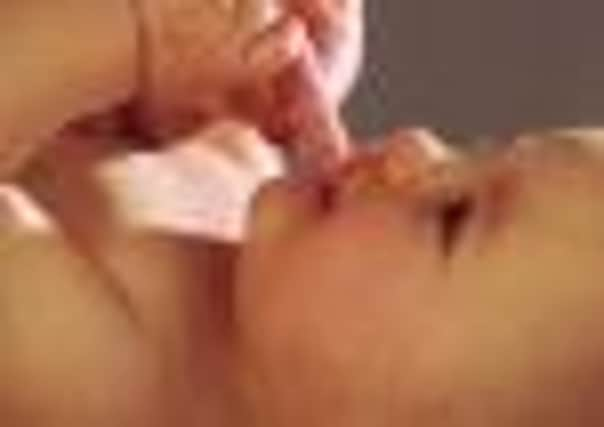Babies casualties of vaccine scare as whooping cough returns


But now a steady and worrying tide of whooping cough (or pertussis, as doctors call it) is spreading through England and Wales. According to the most recent statistics, it is attacking an increasing number of very young babies, say experts at the Health Protection Agency (HPA).
At this stage last year, there had only been 311 cases among all age groups, and 1,040 by the end of December. So far in 2012, 2,466 cases have been reported, with 675 diagnosed in June alone.
Advertisement
Hide AdAdvertisement
Hide AdOf the 675 cases confirmed in June, 82 were in Yorkshire and the Humber, and in line with the national picture, in the first six months of the year a total of 279 cases have been confirmed in the region, compared with just 24 cases for the same period in 2008.
While the disease is generally unpleasant in older people, it can lead to fatal complications in babies. Since the beginning of 2012 the steady rise in the number of cases in this highest risk group has caused great concern. Out of the 260 cases of whooping cough reported in the first six months of this year 14 were in babies under three months old, and by the end of the year the figure could well rise to more than 30, compared with 12 for the whole year in 2009 and 13 in 2010. It’s not a huge incidence, but it is rising, and many of these babies became very seriously ill and are hospitalised.
Dr Stephen Morton, regional director of the HPA in Yorkshire and the Humber, says the reason for the increase in cases of the disease, which is caused by bacteria, goes back to the sharp dip in take-up rates of vaccinations for children following the MMR vaccine furore at the end of the 1990s.
“There are more young teens and adults around now who are not immunised against whooping cough because of that dip, and obviously if a baby catches it who has not yet been vaccinated then their system is not as well able to cope with the dramatic and prolonged coughing fits and breathlessness. The most important thing is for families with children who are under 16 to make sure that all immunisations are completed.”
Advertisement
Hide AdAdvertisement
Hide AdRecommendations are being considered at the moment for the introduction of a whooping cough immunisation programme for young adults who may have been affected by the drop in uptake during their childhood, and a booster programme aimed at pregnant women, says Dr Morton.
“The rise in whooping cough has been of growing concern for a decade, and in the very young it’s of particular concern. It can lead to secondary complications, such as ear problems, vomiting and exhaustion. Immunisation rates in general have been going up again but we’re not really making much inroad into whooping cough.”
Babies are given courses of whooping cough vaccination from three months, which is usually topped-up by a booster jab shortly before starting school. The disease is highly contagious, especially in the early stages, and anyone suspected of having it should stay away from other people until it has completely cleared up. There’s some question about whether the effects of the inoculation are lifelong, but the symptoms are much milder in older adults.
www.hpa.org.uk